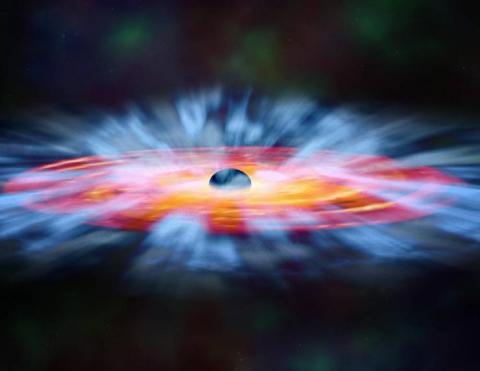
Black holes - in some cases mistakenly portrayed as the "vacuum cleaners" of the universe - hold an unending interest for space experts and sci-fi scholars alike. These bodies, whose gravitational pull is intense that even light can’t escape once it passes the event horizon, have long been considered space-time region where, mysteriously, the typical laws of physics fail.
A long-standing problem identified with black holes deals with something called "information paradox." basically, the laws of quantum mechanics let us know that everything in the universe is encoded with information about its constituent particles' quantum states. Furthermore, this information is not supposed to vanish completely, regardless of the fact that something gets sucked into a black hole. The fact that this data appears to get hopelessly lost when a black hole unavoidably dissipates has baffled physicists for about four decades.
A well-known British physicist and cosmologist Stephen Hawking exhibited a thought regarding how this paradox can be explained, during a lecture at the KTH Royal Institute of Technology in Stockholm on Tuesday. As per him, the quantum-mechanical data about particles falling into black holes doesn't really enter the black hole. "The information is not kept in the inner side of the black hole as one may expect, however in its boundaries - the event Horizon," Hawking said, including that the data is encoded in two-dimensional holograms known as "super translations." "The thought is that super translations are a multi-dimensional image of the in-going particles," Hawking said. "Hence they contain all the data that would otherwise be lost." In this way, while the data is not in fact lost, it is safeguarded in a "chaotic, useless form," Hawking included. "For every single particle purpose, the data is lost." Furthermore, what happens to the stuff that does fall into the black hole? As indicated by Hawking, they go down a one- way path, in the long run twisting up in another universe. "The hole should be big and in the event that it was rotating, it may have an entry to another universe. Yet, you couldn't return to our universe.
So in spite of the fact that I'm enthused about space flight, I'm not going to attempt that," Hawking said. "The message of this address is that black holes … are not the everlasting prisons they were once thought. Things can escape from a black hole both on the outside and conceivably turn out in another universe.


Add new comment